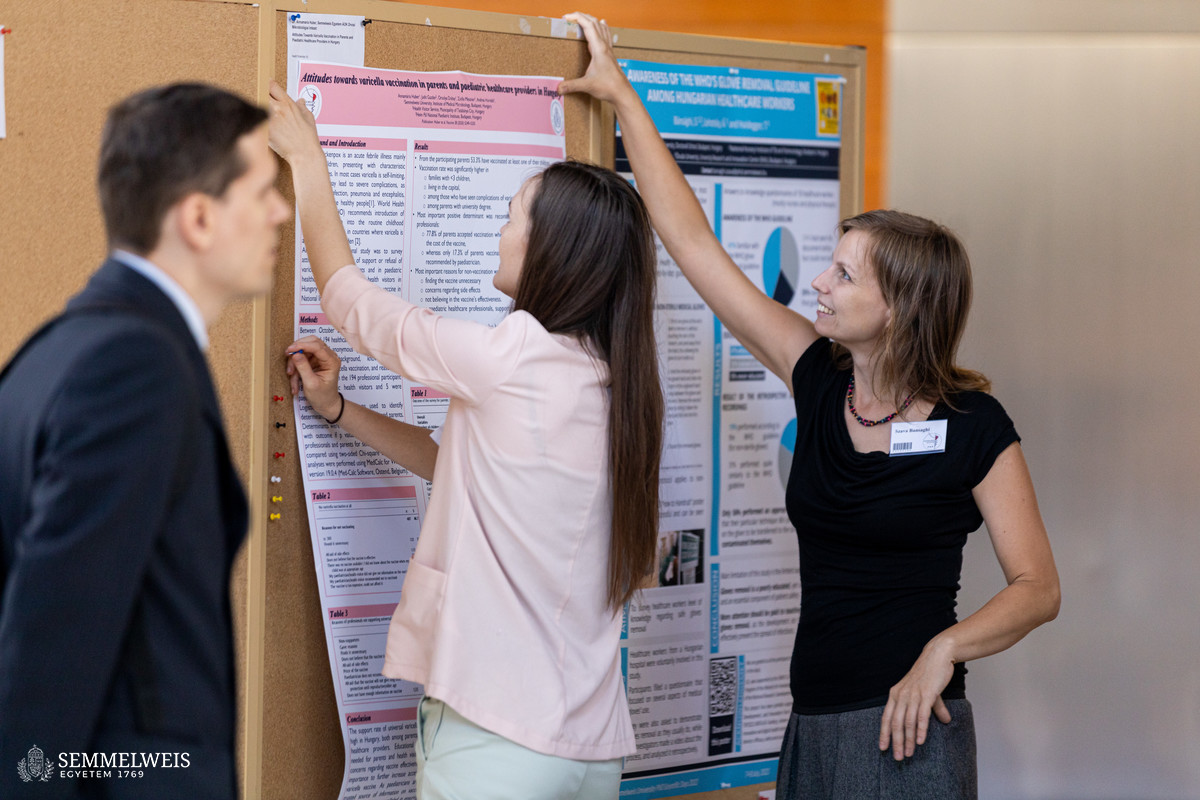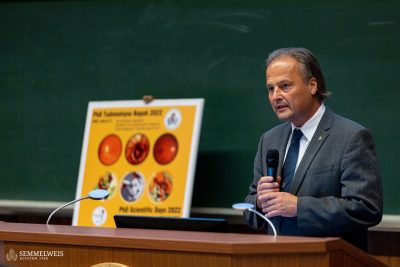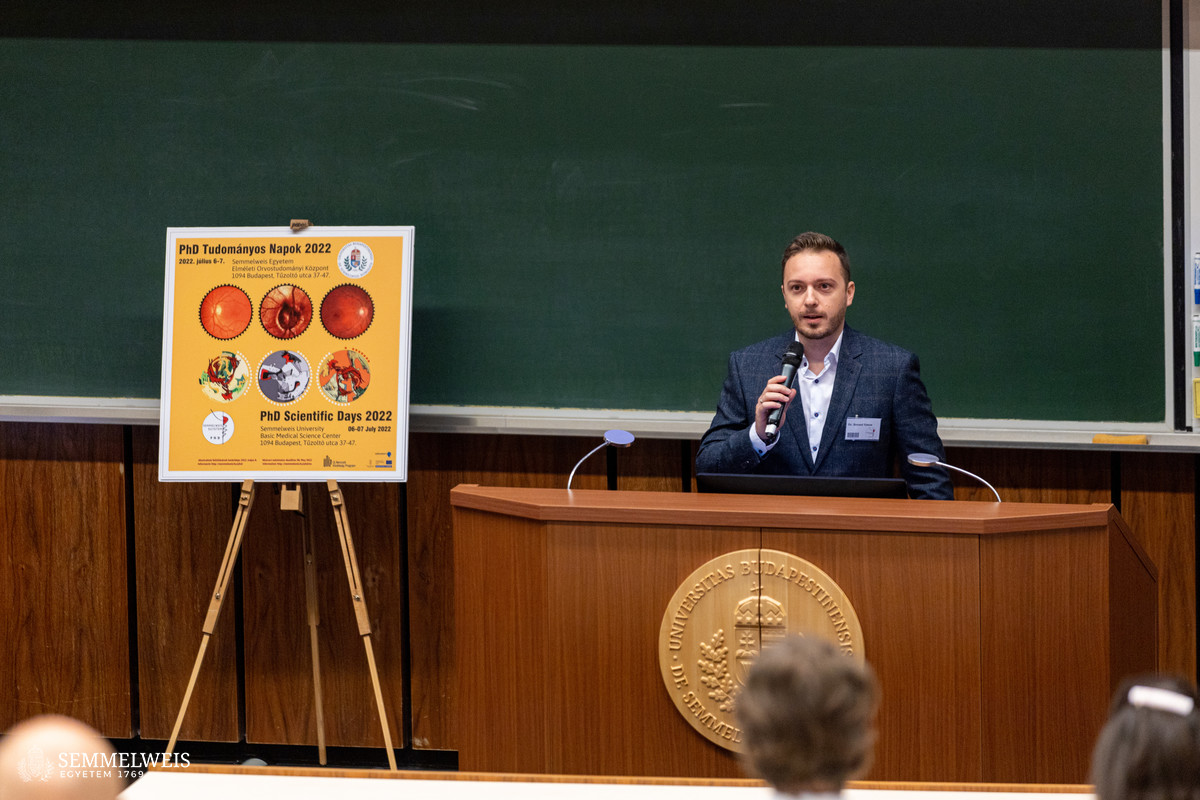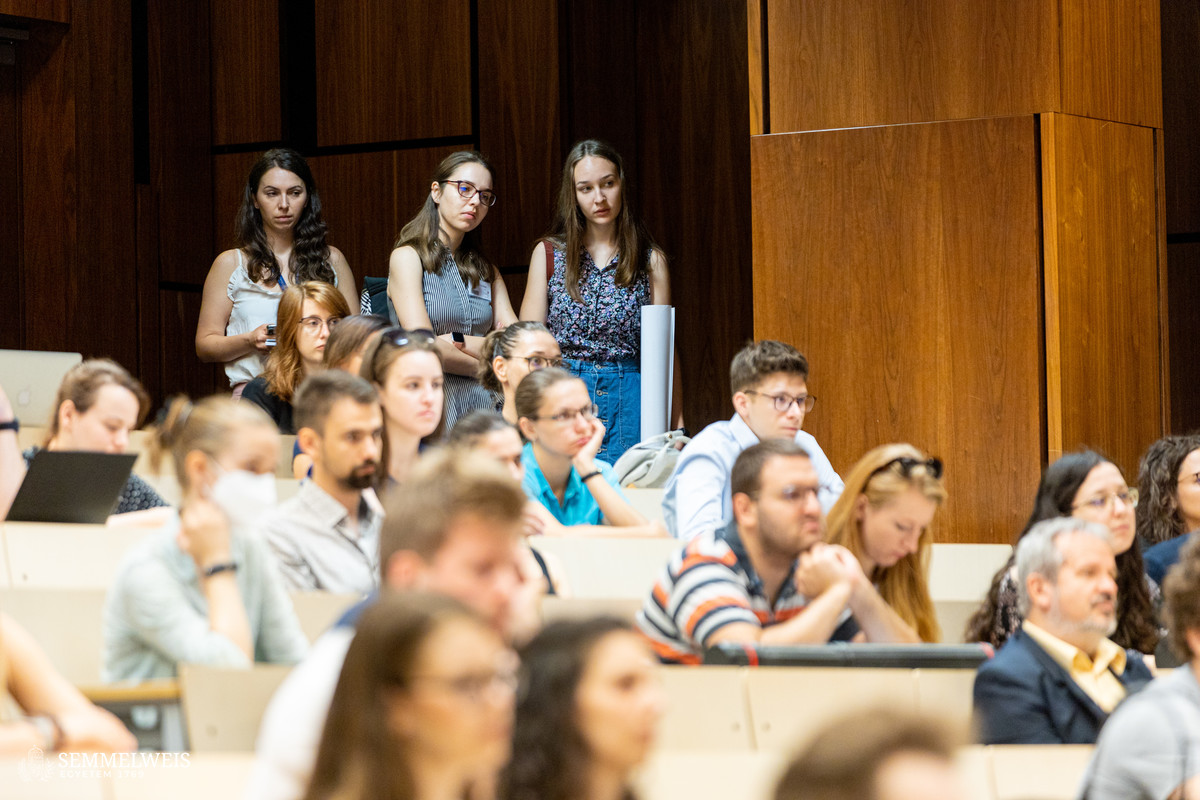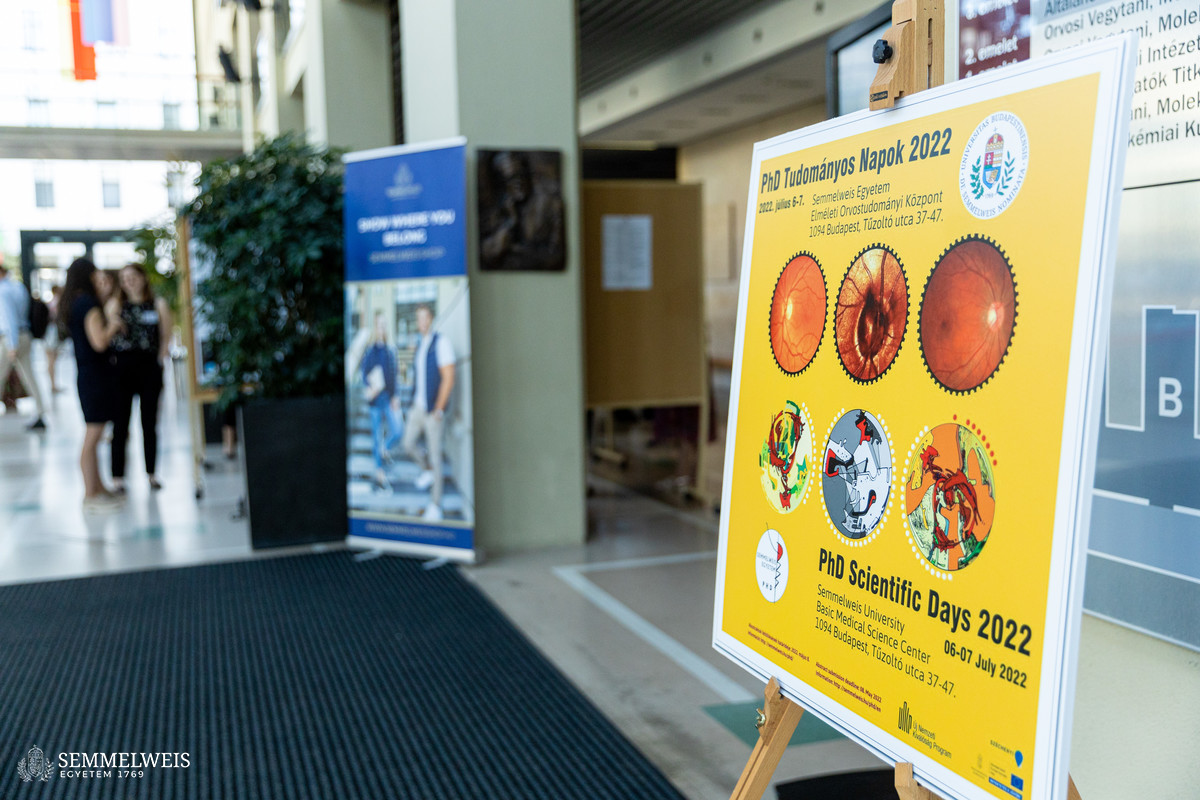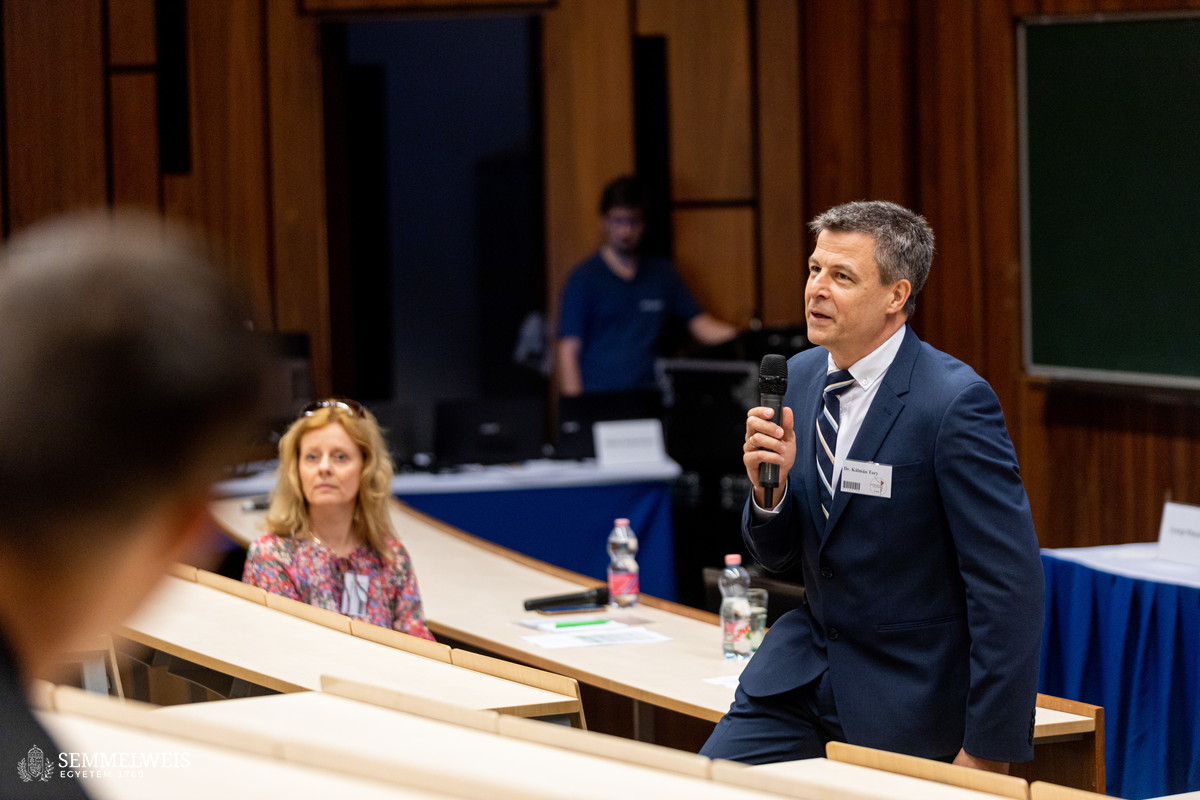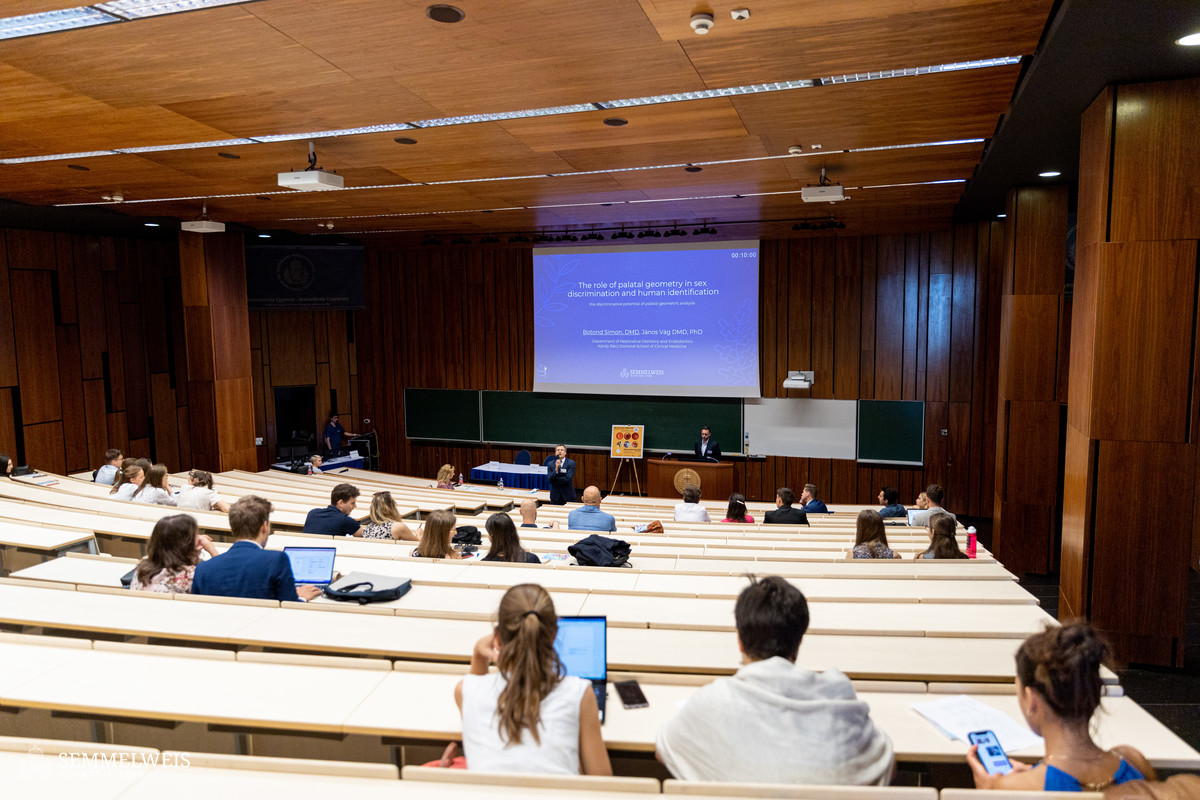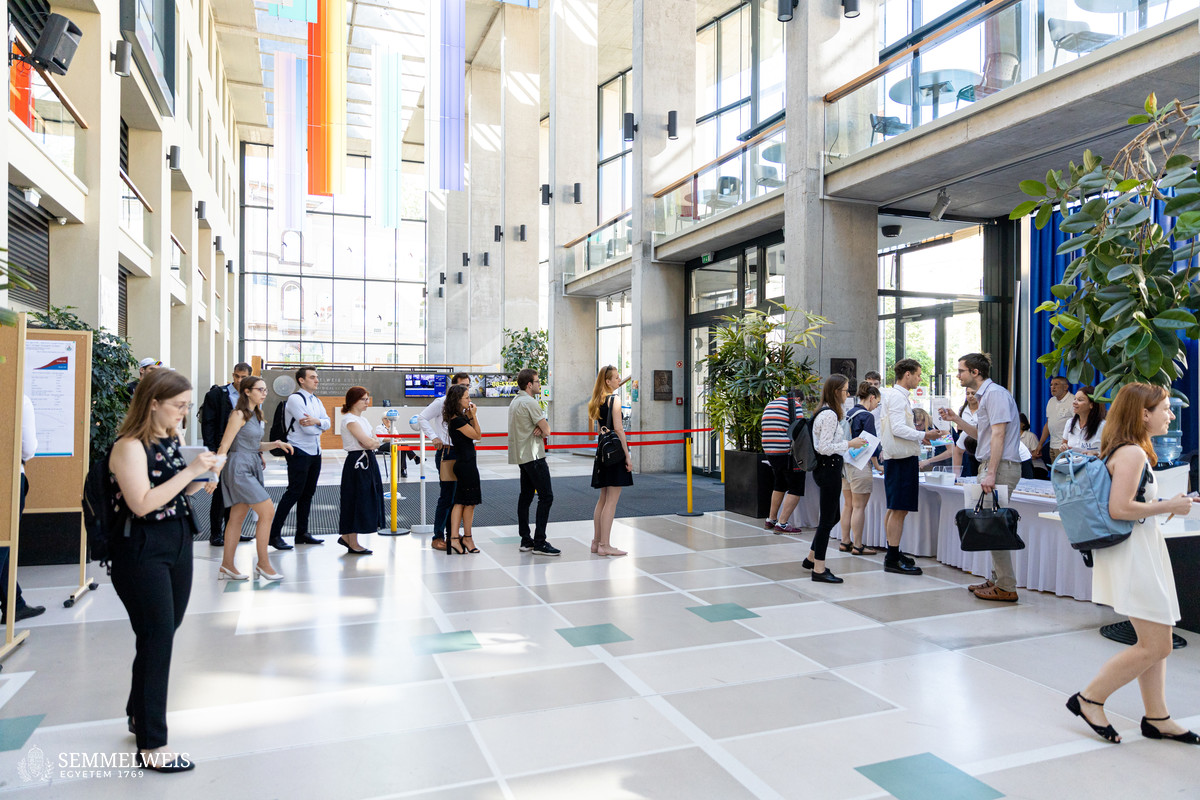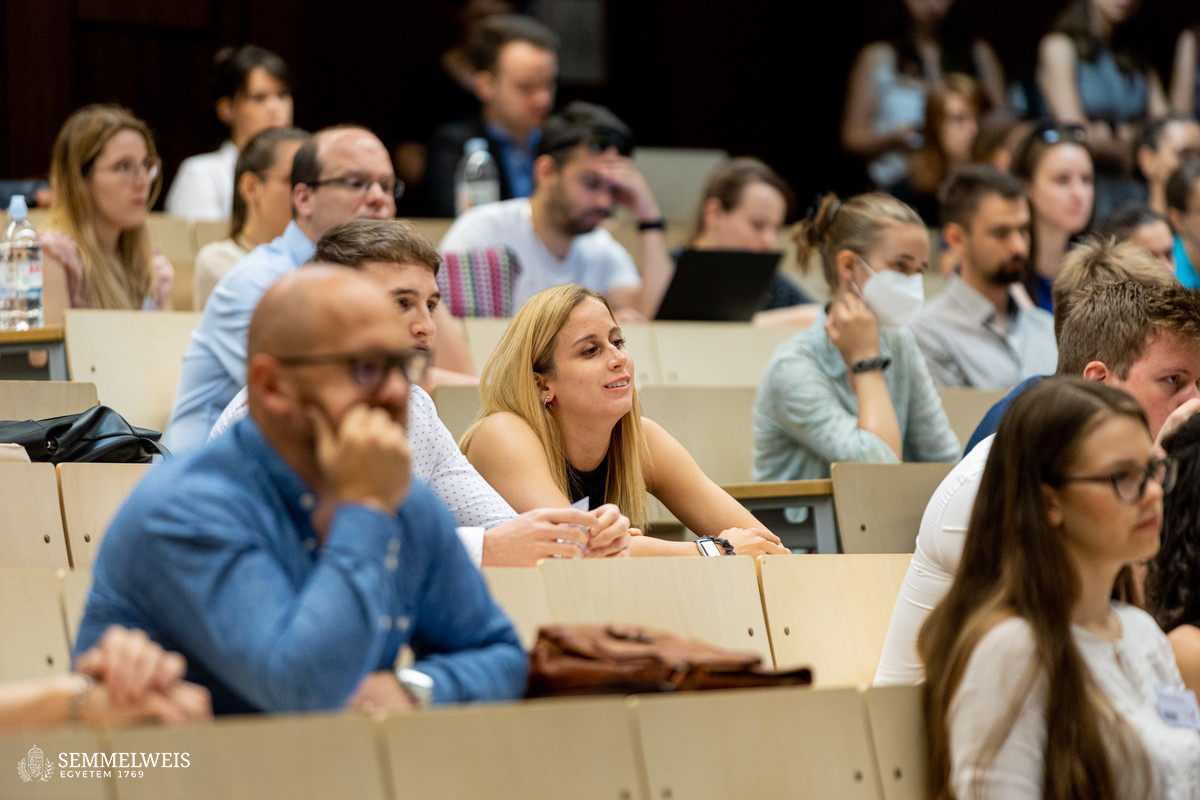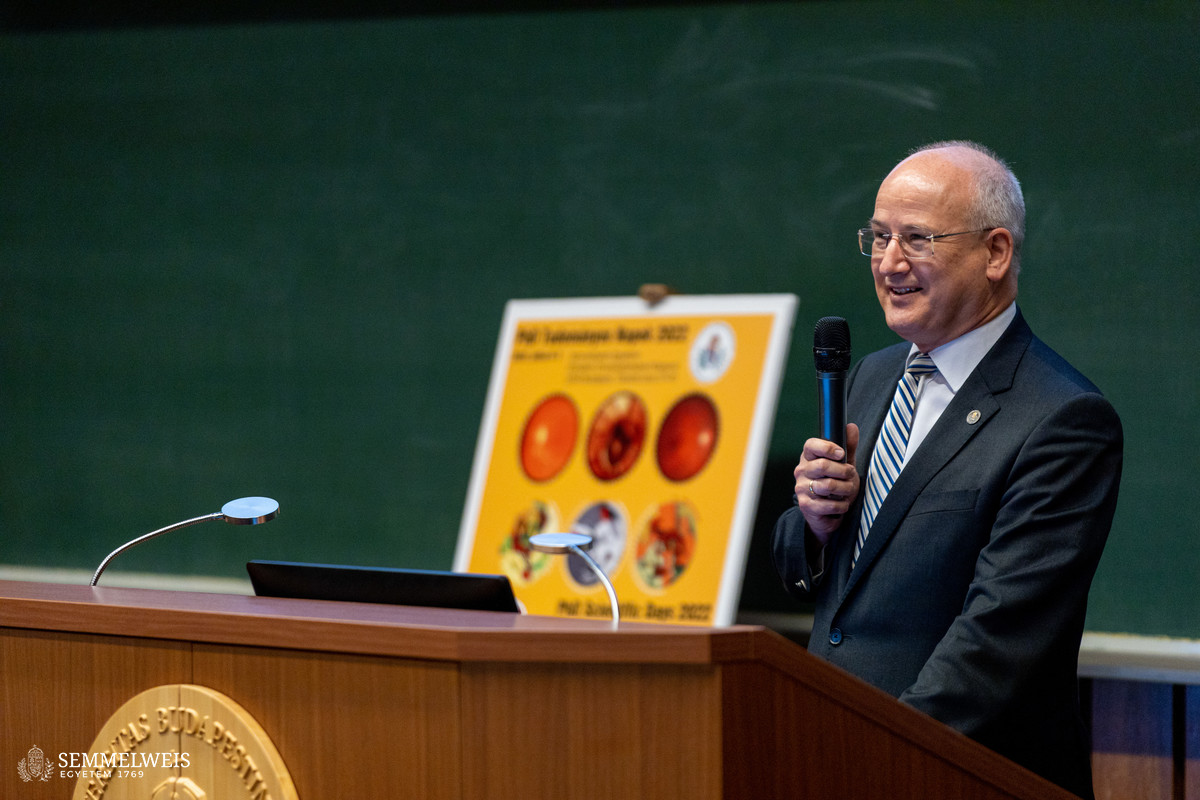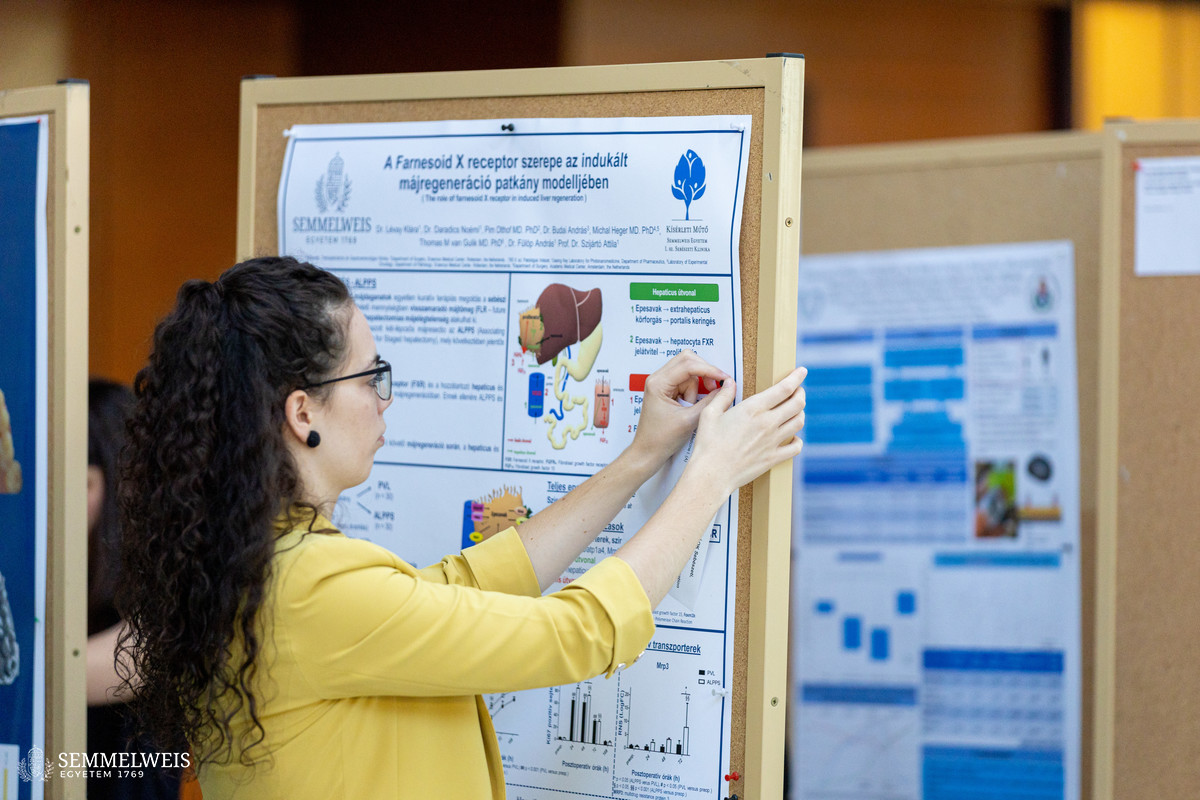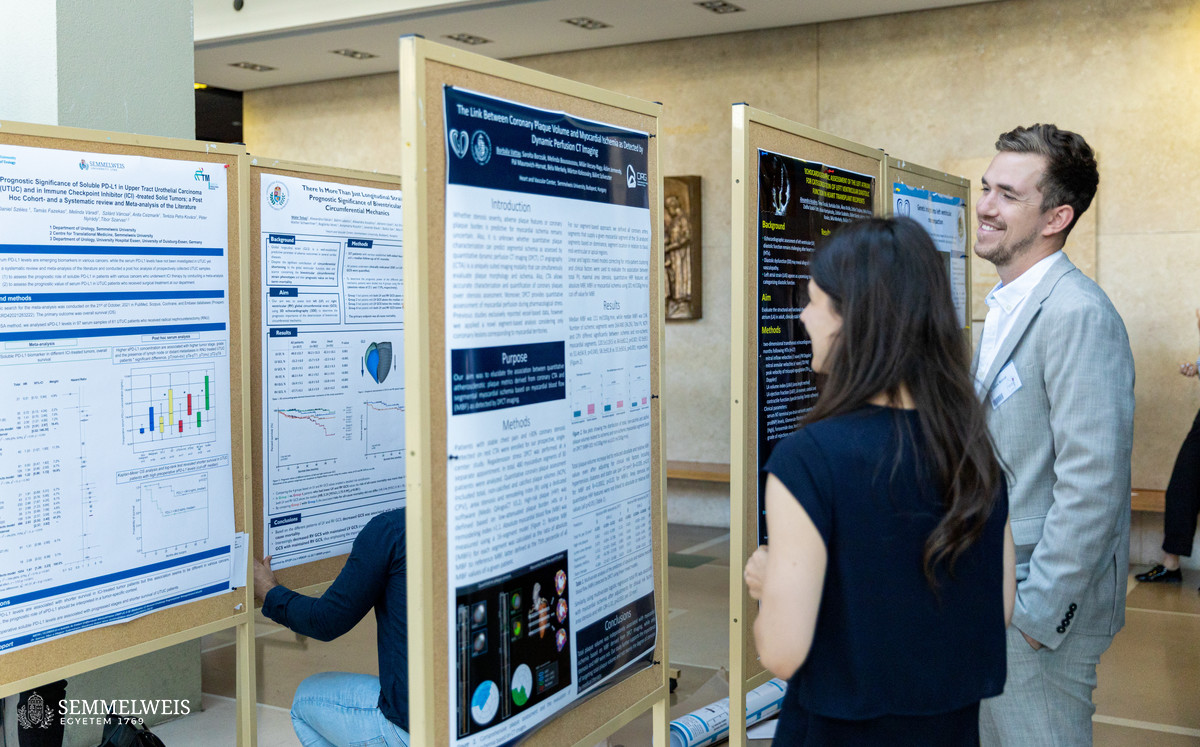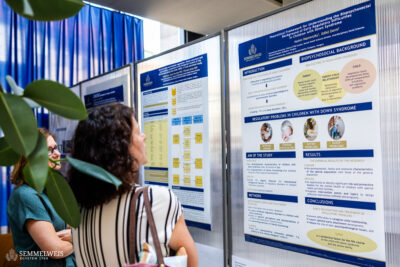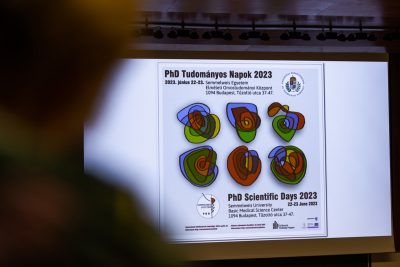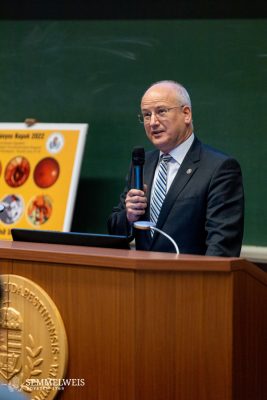 “I wish you fantastic discoveries, life-turning experiences of discovery, the courage to ask important questions and to have strong faith in your knowledge,” this is how Dr. Miklós Kellermayer, Dean of the Faculty of Medicine, greeted the participants of the PhD Scientific Days. Speaking at the opening ceremony in the Centre for Theoretical Medicine, the Director of the Institute of Biophysics and Radiobiology was delighted that a record number of over 400 researchers had registered for the two-day event.
“I wish you fantastic discoveries, life-turning experiences of discovery, the courage to ask important questions and to have strong faith in your knowledge,” this is how Dr. Miklós Kellermayer, Dean of the Faculty of Medicine, greeted the participants of the PhD Scientific Days. Speaking at the opening ceremony in the Centre for Theoretical Medicine, the Director of the Institute of Biophysics and Radiobiology was delighted that a record number of over 400 researchers had registered for the two-day event.
Dr. Miklós Kellermayer described the quest for scientific truth as an intellectual adventure. He recalled how, as a postdoctoral fellow in 1996, he had the great experience of building laser tweezers at Washington State University in Pullman, when they worked on the question of the mechanism of the elasticity of giant muscle protein of titin. They knew that a race was going on between several research groups in this field, but they were the first to succeed in using single-molecule biophysical tools.
His collaborative partner, Dr. Carlos Bustamante said: “We are now putting flags on the white spaces on the map of science and it is very important that we are first. But there is one thing that is more important: to be right!”
“The real purpose of scientific research is to find answers to questions of why and how things happen in nature. At the same time, it’s important for all of us to ask the question: do I believe in what I have learnt?,” the dean stressed.
To illustrate the meaning and importance of this question, he also cited the example of the legendary theoretical physicist, Dr. Károly Simonyi, who built the first Hungarian particle accelerator and performed critical experiments at the University of Sopron, in 1951. The Hungarian physicist spent several hours sitting inside the accelerator’s 1-million volt electrode, taking measurements. He dared to sit inside the electrode because he knew from his studies that the electric field in the middle of an electrode is zero.
“For the researcher, the question was, do I believe in my knowledge so much that I put my life on it? Doctors have to answer the same question: do they trust their knowledge enough to put their patients’ lives on it,”
Dr. Miklós Kellermayer stressed.
After the opening ceremony, Dr. Zoltán Benyó, President of the Doctoral Council, explained that the lectures were to be held in six parallel scientific sections and suggested that they should be given in English, as this would give the opportunity to practice presentations in a foreign language.
162 PhD students gave presentations in the lecture halls using projectors, while 130 students presented their research results in the lobby showing posters. 10-minute long oral presentations were followed by 5-minute discussions.
Presentations were given on the following topics:
- clinical medicine
- molecular sciences
- pathology and oncology
- translational medicine
- pharmaceutical sciences
- mental health sciences
- neurosciences
Gábor Kiss
Photo: Attila Kovács – Semmelweis University
